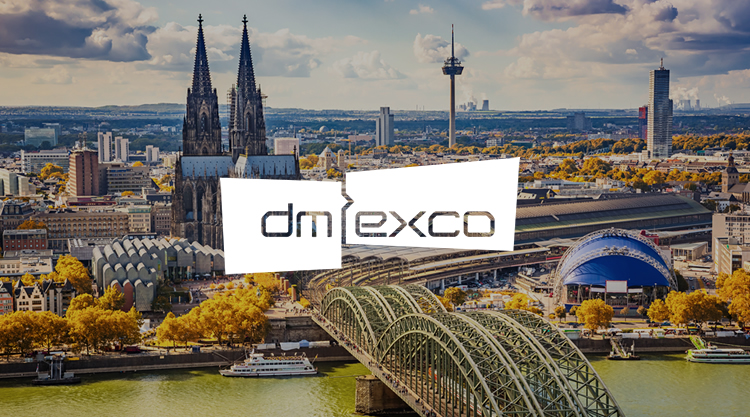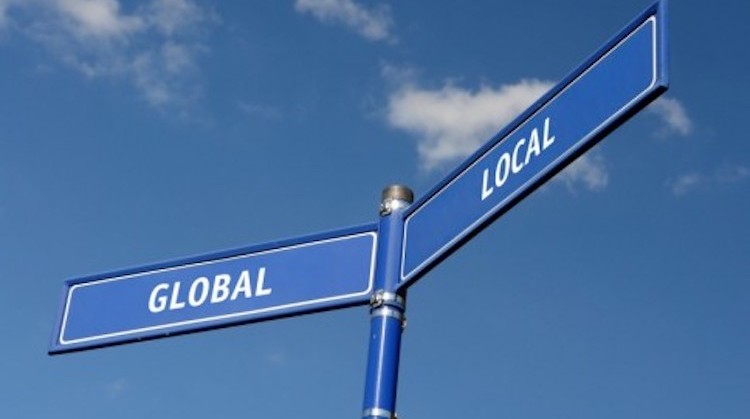There once was a conversation to be had about which was the most worthwhile global event to attend if you work in ad-tech. Based on this year’s goings on, that conversation is over – it’s in Cologne, Germany, and it’s called dmexco (Digital Marketing Exhibition and Conference).
For the owners and operators of other contenders, Cannes Lions and Advertising Week chief among them, this is no bad thing since, in having to cater for and attract ad-technology dollars, those events have diverted from their core purpose. The rise of dmexco as our industry’s official global trade show (at least for ‘Western’ markets) means they can get back to doing what they do best. In the case of Cannes that is as the definitive ‘creative’ advertising awards show, while Advertising Week can concentrate on being a week-long collection of events devoted to discussion about the now and tomorrow of advertising in locations all over the world.
Make no mistake, dmexco continues to be bigger and better each year and has the global digital marketing ‘trade show’ mantle all-but sewn up. This year, the organizers cancelled free tickets, which saw attendee numbers dip to a measly 40,000 from 48,000. An en-masse Air Berlin pilot sick-day didn’t help matters, but it meant that those that did visit had all paid to be there and swag hunters were few and far between.
The number and scale of exhibitors and their stands pushed the show this year into another hall, which few of us had the time to visit but this shows how dmexco still finds room for growth. The real difference is the nature of the show. It is where providers to the digital marketing industry most get to show their wares. And where, for once, buyers of those wares are very much in evidence and in the frame of mind to talk about buying.
As an example, in the course of two days, the PubMatic team of about 20 senior execs and managers conducted 250 bona fide, pre-booked, meetings with existing and prospective partners. This is not to brag, just to highlight the nature of the show. Pre-booking is essential due to the packed diaries of most of those present. The other shade of difference with other events is that these meetings are far from the sun and rose-soaked chit-chat you might find at Cannes. This is not to say those conversations aren’t important, just that if there are next steps to progress in a business deal, dmexco is where you’re more likely to get that done.
What’s also interesting is to view dmexco through a German industry veteran’s eyes. One of our team was in his 16th year at the show. Originally titled OMD (Online Marketing Dusseldorf), he has seen this tiny, German market-only gathering snowball into an event that continues to surprise with its scale. Most significantly, dmexco has attracted over time the rest of continental Europe, then the UK, then the US, and now often APAC companies and execs arrive and return. But dmexco retains its German-ness. All of the country’s big media companies show enormous, multi-layered, multi-media stands and you are as likely to hear German as English on the show floor. This all means the show retains local support and soul.
The conference content at dmexco is rarely consumed by those on show. Instead, we derive our information on what people are talking about by the chat of those we are meeting and those we happen to meet. This year the hot topics of discussion were clear:
- Transparency – all were talking about how the industry deals with ever-greater calls for transparency whether over fees, brand safety, ad fraud, or trading dynamics. Our own white paper on Auction Dynamics, which explains the trading that lies at the heart of how things work, was clearly at the zeitgeist.
- ‘Preferred access’ – a reaction to transparency issues is for players on both the supply and demand side to organize deals that bake in pricing, inventory and environment quality, and preferred access to that inventory over programmatic pipes. For companies like us, it is our role to enable that ‘trusted marketplace’ for both buyer and seller.
- ‘The full stack’ – Nervousness around the power of Google and Facebook’s (and soon Amazon’s) walled-garden systems is leading to more conversations around what other ‘full-stack’ platforms publishers can use. More and more of our conversations centre not on the SSP as the mere pipe to programmatic demand but as the technology platform for understanding and representing publishers’ digital inventory to buyers.
These were the topics most on people’s lips and then, underneath all this, is the underlying trend our industry faces: its ongoing transition from being about media to being about technology. The substance and style of the digital advertising sector – no more clearly laid out before our eyes than at dmexco – has shifted to something much more akin to enterprise-level software sales than the media horse-trading of old. While that prompts an identity crisis among many of those that staff the industry, it is a sign of its growing maturity and a trend only likely to continue. Prost.




